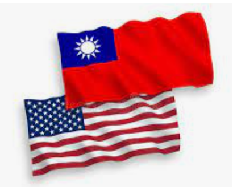Part 3
In the Taiwan newspapers, reports are frequently given about local citizens who are complaining that the government has conducted many types of illegal activities in Taiwan in the past, and should now make full restitution. One common category of complaints concerns private land which was seized in previous decades, and for which compensation has never been paid. However, all lawsuits concerning these issues are conducted in the courts of the "Republic of China," because those are the only courts in existence in Taiwan.
Unfortunately, however, when dealing with such issues, the burden of documentary proof which the local Taiwan plaintiffs are asked to produce is often insurmountable. At the same time, the complications which the ROC judges can delve into and bring forward in investigating such lawsuits are seemingly endless. While some people might suppose that the handling of such lawsuits by the separately-constituted courts of the "Taiwan governing authorities" might be more fair and objective, in fact there are no such courts which could adjudicate such cases.
Hence, the idea that "Taiwan governing authorities" is actually some kind of alternative nomenclature or substitute nomenclature for "Republic of China" is incorrect. In Taiwan at present, in reality an organization calling itself "Taiwan governing authorities" has not yet been formed. Why is this? It is because the US officials are not following the spirit and the letter of the Taiwan Relations Act in their dealings with Taiwan. Clearly, the terminology of "Taiwan governing authorities" was created under US law by the passage of the Taiwan Relations Act in 1979. Therefore, it is the responsibility of US officials to provide the necessary oversight and supervision in enforcing the use of this terminology in the dealings between all organizations, public and private, and all individuals, in the USA and Taiwan. Are US officials doing this? That is an interesting question.
Here is one case study. In response to the COVID-19 epidemic, Vaccination Records began to be issued in Taiwan in 2021 for persons needing to travel overseas. The issuing agency for these Vaccination Records is "Centers for Disease Control, Ministry of Health and Welfare, Republic of China (Taiwan)." When travelling internationally, such records are easily confused with those issued by the authorities in the People’s Republic of China. Most importantly, US government officials should be notifying their Taiwan counterparts in the Ministry of Health and Welfare that the wording of "Republic of China" should not appear on such records when being presented to United States agencies, organizations, etc. as proof of vaccinations received. Have US government officials done this? The answer is No, thus clearly indicating that these US government officials are not adhering to the Taiwan Relations Act.










